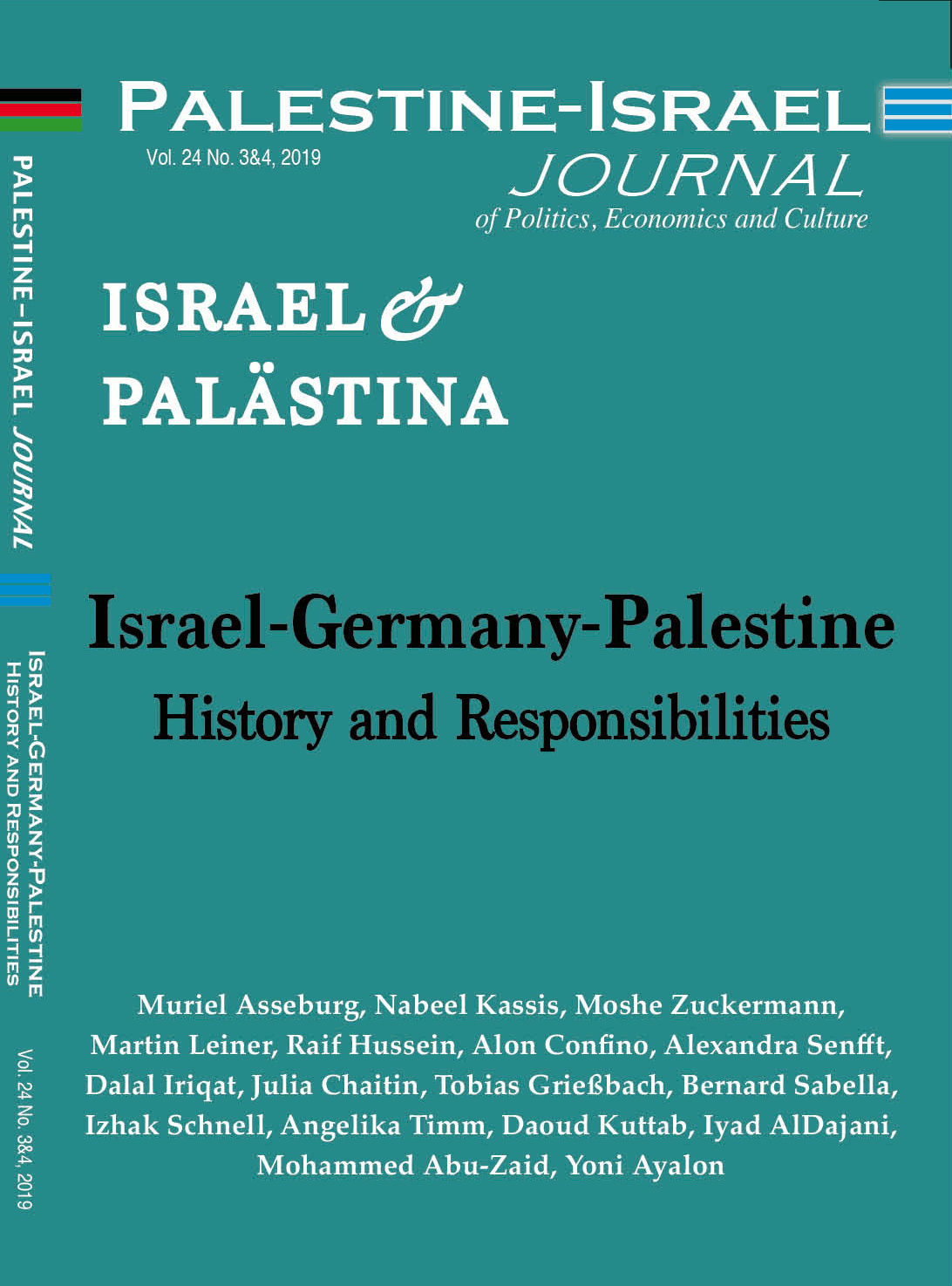Germany, the largest European country, emerging from under the rubble of the 2nd World War, wounded and ruined, accompanied by and sometimes traumatized with memories of its darkest era of history under the Nazi Regime, succeeded to recover and become the strongest economy in Europe. The resurrection of Germany did not lead it to disengage from responsibility for its history, and it decided to deal with that responsibility and aspire to better relations with its victims from the past.
(West) Germany contributed enormously to the building of the state of Israel on all levels and aspects and built a unique special relationship with Israel. And while maintaining that special relationship with Israel, Germany was able to build and develop a cooperative friendly relationship with the Palestinian Authority, the governing body which emerged after signing the Oslo Accords between Israel and the PLO in an attempt to resolve the Israeli-Palestinian conflict.
This reality inspired the editors of the Palestine-Israel Journal from Jerusalem and the diAk with its quarterly israel & palästina –Zeitschriftfür Dialog to publish a special issue which tries to examine the Israeli-German-Palestinian Triangle from different angles. It considers what was done, and what should and could be done to maintain, strengthen, and balance the German role in helping to transform the conflict and promote peaceful relations between Israel and Palestine. This German role will be within the context of an international effort which should be recruited to achieve this goal.
This volume deals with the complex, antagonistic and tension-filled network of relations between the three respective collective identities which diAk carries in its name: “Germany | Israel | Palestine – Thinking Together.” Again and again these relations have created a source of dispute, debate and talks, frequently characterized by misunderstandings and sometimes even by the absence of any desire to understand the other.
The common effort to create this publication appears at a moment when mutual talks, constructive discussion and a respectful-critical dialogue are seemingly not self-evident anymore, if they have ever been. The narrative in Germany, within its own confusing and broken post-war reality, in Israel, and in Palestine remains determined to a great degree by the crimes done by Germany and in the German name in the 20th century. The conclusions which need to be drawn from this history remain different for the different sides. But beyond a particular or a universal answer to the questions of history, the question of justice and human right remains a challenge to all. With this issue diAk and PIJ are once again approaching this difficult and not equilateral triangle. For sure it will not be the last time that this question arises. It remains a challenging triangle. And not only for the German side. This responsibility remains, especially when facing the reality between the Jordan River and the Mediterranean Sea, a place where history with its consequences seemingly has not come to a good end yet. But peace and justice need to be realized if memory will not just become an empty, meaningless phrase.
This issue will appear in English in the Palestine-Israel Journal and in German in israel & palästina – Zeitschrift für Dialog. This project was possible only due to the generous support of the Federal Foreign Office of Germany. But it should be said clearly that the articles published in this issue of the two journals represent only the views of their authors, and do not necessarily represent the views, opinions or political positions of the German Government, the Palestine-Israel Journal, or the israel & palästina – Zeitschrift für Dialog.
Palestine-Israel Journal israel & palästina
Ziad Abu Zayyad & Hillel Schenker Rainer Zimmer-Winkel

